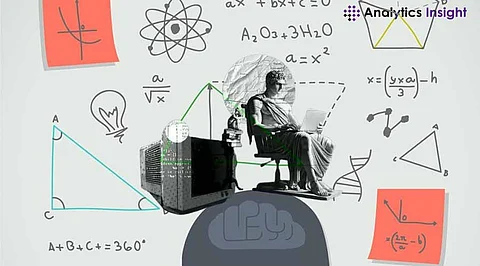

In a breakthrough leap for artificial intelligence (AI), Google’s AlphaGeometry2 has beaten human gold medalists at the renowned International Mathematical Olympiad (IMO). The math solver AI solved 84 percent of tough geometry problems, winning an 81.8 percent success rate over leading human competitors.
Created by Google DeepMind, the initial AlphaGeometry debuted last year, delivering a silver medal performance. However, a year later, with enhanced abilities, its new version has outperformed gold medal winners. Google credits this achievement to a more sophisticated problem-solving architecture, allowing the AI to solve complex equations involving angles, proportions, and object motion—domains previously considered outside the realm of AI.
This achievement is a major step towards AI advancing in higher-level reasoning and getting closer to human mathematical intuition.
The IMO is the longest-running, largest, and most distinguished competition for young math students, annually held since 1959. Every year, the top pre-college mathematicians prepare, sometimes for up to thousands of hours, to solve six extremely hard problems in algebra, combinatorics, geometry, and number theory. Numerous field medal winners, one of the highest awards of mathematicians, have been the representatives of their nation at the IMO.
More recently, the yearly IMO contest has also come to be well known as a grand challenge of machine learning and an inspirational benchmark for evaluating an AI system’s superior mathematical reasoning abilities.
Though Google boasts a phenomenal 84 percent success ratio in solving math problems of a complicated nature, they still admit that AG2 has shortfalls that need to be removed before perfect command is required.
Google says its AI domain language still falls under some sophisticated math concepts such as variable quantities of points, non-linear equations, and inequalities – major determinants of how one solves top-shelf geometry problems.
As per a news article in NDTV, Google explained that their language domain does not enable speaking about a variable number of points, non-linear equations, and inequality problems, which have to be taken care of so that it can solve geometry.
DeepMind researchers highlight that the long-term target of AG2 is to achieve complete automation in geometry problem-solving with perfect accuracy. Besides optimising its reasoning power, they are looking to boost the system's efficiency by speeding up the inference rates and increasing overall reliability.
While AlphaGeometry 2, or AG2, has already surpassed the performance of human gold medallists at the International Mathematical Olympiad, Google’s ongoing efforts suggest that AI’s journey toward true mathematical intuition is far from over.
Speed and accuracy advantage: AI systems handle massive amounts of data at unimaginable speeds, eliminating human error and providing exact results when solving problems.
Shortcomings in conceptual understanding: Though successful, AG2 still finds it difficult to tackle non-linear equations, inequalities, and variable quantities.
AI does not possess intuition and abstract reasoning: Whereas AI is strong in systematic problem-solving, it cannot create abstract associations and novel mathematical findings like humans.
Potential for complete automation: DeepMind researchers aim for AG2 to achieve complete automation in geometry problem-solving, hinting at a future where AI could solve math problems without human intervention.
Instead of replacing mathematicians, AI may serve as a powerful assistant, tackling problems and accelerating research that requires brute-force computation. The emergence of AI in mathematics promises a thrilling future, but whether machines can ever outdo the human brain is still a big question.
